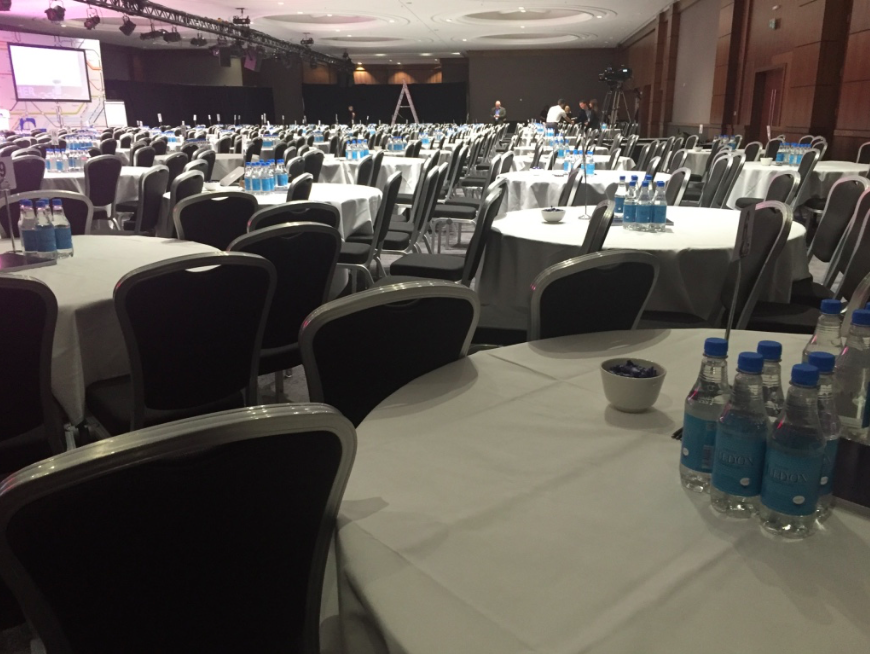
(London, UK)
As I am sitting in the ballroom of a hotel in London waiting for the DLA Piper global conference to begin this afternoon. 700+ lawyers from all over the world will soon fill the room, but right now it’s empty apart from a couple of people. These people are the speakers of the conference and we are here for “rehearsal”.
Sitting here waiting for my time to “rehearse” I think about how I usually answer the question: “Do you rehearse your speeches?”
I tend to answer: “no”.
But I guess the answer is actually “yes”.
Because the word “rehearse” means to “practise (a play, piece of music, or other work) for later public performance.”
But it also means to “mentally prepare or recite (words one intends to say).”
I generally do not rehearse, as in the meaning of “practise”, my speeches on the same day as I am to deliver them because I want to keep my mind open to how the audience is reacting.
But I do “mentally prepare” for hours and hours.
I do not do it “word by word” but more “message by message”.
What do I want the audience to remember?
How do I want them to feel?
What is the purpose of having me speak at this conference?
What is the over all purpose of the conference I am speaking at? (What was the theme of the conference and why did they pick that theme?)
How will my message fit with that?
What was the brief for this speech and what do I need to do to fulfil it?
What could go wrong?
What am I worried about?
What other speeches have I done for similar audiences and what can I learn from those?
In what kind of state will the audience be?
What is the “QI” of the room?
How does it feel to sit in the audience? (Go and sit in a few of the seats to get a feel of how the stage looks from an audiences perspective)
How does it feel to stand on the stage? (Get up and walk on the stage to get a feel of the stage.)
Is there a timer, where can you see your slides, what kind of a clicker are we using? etc (get a feel of the technology of the room)
What is the sentiment of the group? (Go and eat breakfast with the group and get a feeling of what they are talking about (yes, eavesdrop!)
And so on, and so on….
Hundred’s of questions that spinn through my head, not about the words I am going to say, but about how will the message be best received?
Today I speak at 3.3o pm and the conference begins at 2 pm but I was in the ballroom at 8 am and sat there mentally going through the speech until lunch time (while also talking to staff, meeting the technicians, talking to the senior leadership who came to rehearse their speeches and so on.)
At lunch time I will go for a 1 hour walk to clear my head and get fresh air and energy from the sun. Then I will walk in and deliver my speech.
Turns out that the word “rehearse” can be traced back to the old French word “rehercier”, that perhaps comes from re- ‘again’ + “hercer” which means “to harrow”.

And the purpose of harrowing is “to break up clods (lumps of soil) and to provide a finer finish.”. But harrowing is not “plowing”, it’s not about going deep and stirring things around a lot.
And that is how I look at rehearsal: as a way to mentally smooth out anything that might stop the audience from getting the message that I want them to get.
Lesson: Should you rehearse as a speaker: Absolutely, no question about it. The delivery of a speech should be smooth and free up “clods”, but the best way to do that might not be to put every single word in the right order – but to get the very best feeling of the kind of message that is the best message for you to deliver.
Because what is the point of delivering a series of words in the perfect order if those words are not the right words for the audience to hear?